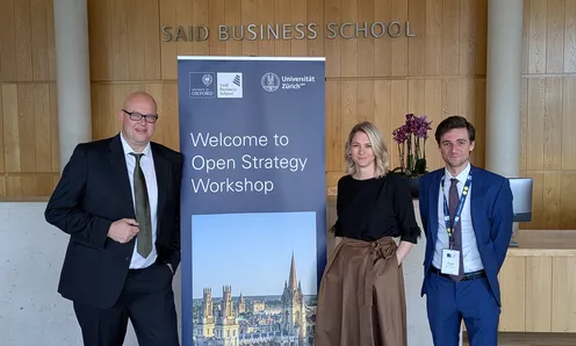Durch ein Studium an unserer Fakultät für Betriebswirtschaft werden Sie in die Lage versetzt, mit komplexen gesellschaftlich-ökonomischen Fragestellungen verantwortungsvoll umzugehen. Wir sind als Teil der Leopold-Franzens-Universität Innsbruck ein Ort sich ständig erneuernden, vielfältigen Wissens mit gesellschaftlicher Relevanz.
Fakultät für Betriebswirtschaft

Forschung
Wir bieten unseren Forscherinnen und Forschern den intellektuellen Raum, um ihre facettenreiche, individuelle Forschungsarbeit weiter zu entwickeln.

Institute und Organisation
Unsere Fakultät besteht derzeit aus fünf Instituten und einem Arbeitsbereich für Wirtschaftssprachen. [...]

Studium
Unsere Fakultät ist seit jeher für ihre innovative Management-Ausbildung bekannt. Durch unsere neuen Studiengänge setzen wir diesen Weg auch in Zukunft fort.

Staying Connected
Das Alumni-Netzwerk der Fakultät für Betriebswirtschaft an der Universität Innsbruck

Wir über uns
Hier finden Sie unsere 'faculty portraits', das Leitbild der Fakultät, Grußworte, Stellenanzeigen und Kontaktdaten.
Aus der Fakultät

Prestigeträchtiger Dissertationspreis
Khalid Durani wird mit dem renommierten ACM SIGMIS Dissertation Award 2025 ausgezeichnet. Der Preis zählt seit über drei Jahrzehnten zu den bedeutendsten internationalen Auszeichnungen im Bereich Wirtschaftsinformatik und würdigt jährlich die weltweit beste Dissertation in diesem Gebiet.

Open Strategy Workshop: Von Oxford nach Innsbruck
Am 25. und 26. Juni 2025 fand an der Saïd Business School der University of Oxford der „2. Open Strategy Workshop“ statt. Die internationale Veranstaltung überzeugte mit einem dichten Programm, abgerundet durch ein siegreiches Innsbrucker Wissenschaftler:innen-Team. 2026 wird der Workshop an der Universität Innsbruck stattfinden.

Jungwissenschaftler:innen bei Sommerfestakt ausgezeichnet
Alljährlich nimmt das Vizerektorat für Forschung die Auszeichnung der Doktoratsstipendant:innen sowie weiterer Preisträger:innen in einem gemeinsamen Festakt vor. Die anwesenden Nachwuchswissenschaftler:innen gaben Einblick in ihre Forschungsprojekte.

Nicola Stokburger-Sauer erhielt Steenkamp Award
Im Rahmen der diesjährigen Konferenz der European Marketing Academy (EMAC) in Madrid wurden Nicola Stokburger-Sauer vom Institut für Management und Marketing der Uni Innsbruck, S. Ratneshwar von der University of Missouri und Sankar Sen vom Baruch College der City University of New York mit dem diesjährigen Jan-Benedict E.M. Steenkamp Award for Long-Term Impact ausgezeichnet.

Jonathan Bernsteiner ist Wirtschaftsstudent des Jahres
Der Saalfeldner Jonathan Bernsteiner wurde zum Studierenden des Jahres an den wirtschaftswissenschaftlichen Fakultäten der Universität Innsbruck gekürt. Verbunden ist die Auszeichnung „Student of the Year in Management and Economics“ mit einem Preisgeld von 2.000 Euro, das von der Bank Austria Förderstiftung zur Verfügung gestellt wird.

Climate Action Workshop 2025
Am 28. Mai fand an der Universität Innsbruck die 3. Auflage des Climate Action Workshops statt. Über 50 Teilnehmer:innen führten einen halben Tag lang anregende Diskussionen und tauschten sich über Spitzenforschung mit dem Fokus menschlicher Antworten auf die Klimakrise aus.

EPoS-Summer-Summit zu Künstlicher Intelligenz
Das Jahr 2025 steht im Forschungsschwerpunkt Economy, Politics & Society (EPoS) im Zeichen der Künstlichen Intelligenz. Der Fokus richtet sich auf Anwendungen und Implikationen im Bereich der Forschung und der Praxis. Die Kick-off-Veranstaltung fand am 11. April statt.

Hilfestellung zum Umgang mit Künstlicher Intelligenz
Hier finden Sie die Handreichung für Studierende beschlossen vom Fakultätsrat der Fakultät für Betriebswirtschaft im Mai 2024 sowie Antworten zu folgenden Fragen:
- Wie können KI-Tools zur Unterstützung eingesetzt werden?
- Wie kann man verantwortungsbewusst mit KI-Tools umgehen?
- Was sind Leitlinien für den Einsatz dieser in wissenschaftlichen Arbeiten?
- Was sind mögliche negative Folgen bei der Verwendung?
Kontakt
Sprechstunden nach Vereinbarung
+ 43 (0) 512 / 507 - 72501.
Universitätsstraße 15
6020 Innsbruck, Austria
+43 512 507-30041







